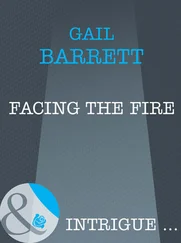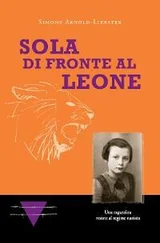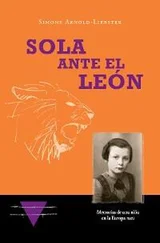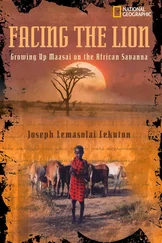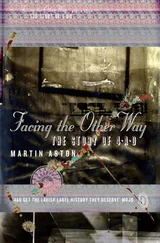What a day it had been! I had learned the importance of obedience and respect. I had learned how humble Mother was; she acknowledged her misunderstanding and asked me to forgive her. That event taught me a lesson, one that would be valuable later in my life.
I was a happy little girl by the time Mum tucked me in bed. Her deep-blue eyes, her tender kiss, and her last words, “Good night, my treasure,” made it a memorable day.

OCTOBER 1, 1936
The cool morning breeze helped me to open my sleepy eyes. Even though I knew the way to school, Mother had to come along. The girls’ school was next to the church. The school was a three-story pink sandstone building. We all gathered in front of the stone steps. On the top step stood the teacher and the supervisor, who had a list. Only a few girls had brand-new book bags. When we bought mine, Mum had said, “It has to be good-quality leather, because it has to hold up for the next eight years.”
“School from 8 a.m. to 12 noon and 2 p.m. to 4 p.m., Thursday off,” read the circular. “The child must have a book bag to be carried on the back, a slate with a dry rag fastened to it, and a wet sponge. The child must wear a blouse with long sleeves, closed with buttons in the back. It has to cover the dress and have two pockets, with one handkerchief. The blouse will be left at school and must be washed and ironed over the weekend.” Three blouses, one pink, one light blue, and one light green flew out of my mother’s fairy fingers—my mother worked magic with her sewing machine. My blouses had big seams “to grow with me for at least two years.”
“Simone Arnold.” I was the first one to be called. I stepped forward and looked up at Mademoiselle, starting from her half boots and following the hem of her long gray dress. She had an unforgettable stature, like the pictures of Dad’s mother in our photo album. The white lace collar and her light-gray hair tied in the back made her face look as round as the full moon. Behind round glasses her deep-blue eyes looked like Mother’s. Her skin was dotted with warts, white hairs sticking up in the middle, just like my Aunt Eugenie’s. She was an old lady like Grandma, but she had authority like Dad! I felt at ease, because she was the combination of all my loved ones.
Mademoiselle pointed out my place next to Frida. “This desk is rather new and has no ink spots. Sit here in this second row, because you are among the smallest pupils.” I knew right away that I had her favor. The first day finished quickly.
Four other girls in my class lived on my street. Andrée, Blanche, and Madeleine lived past my house, but little Frida’s house came first. Frida always trembled like a poplar tree leaf. I felt I had to protect her. She was so frail. Her blond hair, her translucent skin with her little red cheeks, and the black rings around her burning eyes gave her a frail look.
“Children who wear gray or dark blue blouses are from poor families,” Mother had explained. Not only was Frida’s blouse blue, but it was baggy and frayed, and her book bag was worn out.
We walked as a group along our mile-long street, Rue de la mer rouge, passing the railroad station. Next came the section with some very small and rundown factory buildings, the bakery, the haberdashery, the grocery, and the milk store. Then the street name changed to Zu-Rhein, the name of a noble family whose house was in a big park, and on the other side of the park to the right were some very fancy homes with big balconies.
“Adolphe, did you read this circular?” asked Mum. It said the class was to have a collective shower on Friday—no exceptions. Soap and bathing trousers would be provided. All welfare children were to get a bowl of milk and a roll at ten o’clock.
“We didn’t have those advantages in our youth,” Dad said, “but I’m not surprised. Mulhouse is a socialist town.”
“Dad, what’s a socialist town?”
“It’s a town where workers get together to defend their rights and fight for justice. Their wages are so low that it is a plain injustice.” “Dad, what’s an injustice?”
Dad pointed to a five-foot oil painting hanging in our little salon. It represented a shepherd praying the Angelus at noon. He had painted it at art school when he was fifteen. “It was shown in an exhibition and I got the highest score. But when the prizes were distributed, I got a silver medal instead of the gold one. Gran’papa went to the school supervisor to find out about it.” Dad sat down and took me on his lap and became very bitter.
“Remember, Simone, for your whole life, remember the school supervisor’s answer: ‘It is just unthinkable that we give the gold medal to a unknown little mountain lad whose name doesn’t mean anything. The gold goes to the son of Mr. So-and-so, who is our sponsor and a famous man in town!’” A long silence followed.
“He even said to my stepfather, ‘If you take it badly, I won’t force the boy to take the silver one either.’” Opening the drawer, I examined the silver medal while Dad repeated, “Injustice—yes, this is what the workers fight against. This is what being a socialist means.”

In the school yard, the lime tree turned yellow and the wind snatched the leaves, playing with them before we could catch them for our toys. But Frida never chased after them. She would just watch us play while she ate my butter and jam sandwich, which I exchanged for her dry roll; I did not feel comfortable with my pink blouse. I did not want to be considered a “rich girl.”
“You look tired, Frida,” I told her.
“I just don’t like the wind,” she said between coughs.
“Where does your father work?”
“In the garden.”
“He doesn’t get any salary in the garden, does he?”
“No, he is an invalid.”
I will have to find out what kind of factory that is, I thought to myself. She couldn’t explain it. She was so bashful. On Monday morning, she was absent from school. The little house where she lived always had its shutters closed on the street side. Happily though, Frida came to school in the afternoon. I had missed her badly, and I had to give my sandwich to another girl. I couldn’t eat buttered bread in front of so many poor girls.
The following Monday, it rained again, and Frida was absent from school. She is made of sugar, I said to myself. Why is she scared when it rains? Our rain-soaked hooded capes, drenched hair, and wet shoes made the whole classroom smell like a stable. Our four big windows were of no use this morning. The light bulbs behind their dishes gave us a yellow light, just enough for the Monday morning check-up ritual.
Blanche and Madeleine chattered excitedly about the firemen, the ambulance, and the police we had seen that morning. “ Mademoiselle is coming!” someone warned us. We scrambled to our desks and put our things in order—the slate with its scrubbed white wooden frame, the clean sponge, and the folded handkerchief. Even our ten fingers had to be placed properly on the desk. When she entered the classroom, silence fell over it like a switched-off radio. It took a while until she went through the whole class, checking our shoes, our skirts, and even our ears!
That day, I couldn’t get my mind off the river flowing behind our house, the one that disappeared underground. I had seen a light-blue thing floating downstream and two men with hooks trying to pull it to shore. “Simone, quickly go inside,” Mother ordered. Later I heard the neighbors talking about three-year-old twins. The body of one baby boy had been found; the other had been swallowed up by the swirling abyss.
Читать дальше





